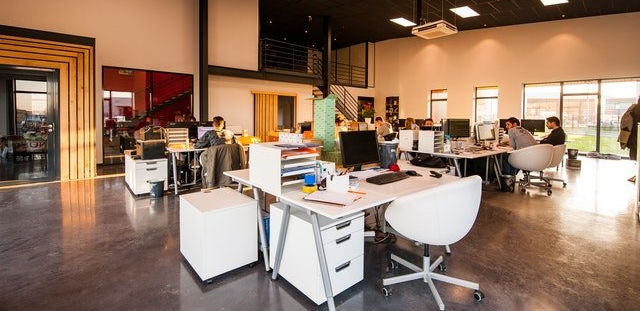The Lifecycle of Office Technology

Every technology has a lifespan within which it functions optimally. Beyond this point, the technology becomes outdated and must be upgraded or replaced to keep IT assets in good working condition. IT infrastructure lifespan can be extended with proper maintenance but eventually, they will need replacement at the end of their life cycle in order to maintain productivity. In this article, we discuss various IT assets and their office technology life cycle.
1. Servers
As a small business owner, servers are essential parts of your business whether you have them on-premise or you rent them in the cloud.
A server basically serves data in response to a user’s request. Servers consist of both hardware and software parts that handle requests from clients.
A common example is a web server. It sends out requested web pages based on client’s queries.
Other functions perform by servers include:
- Hosting domain-specific email
- File storage
- Providing remote access to a company’s network
- Control access to business resources
- Internet and intranet page hosting
- Running CRM, Accounting, and HR software
A server’s optimal performance only lasts so long. Replacement is needed in about 5 to 7 years to keep your business running smoothly.
2. Computer Systems
A computer is used for storing, retrieving, and processing data. Web browsing, watching videos, running business software, and chatting are all done using a computer system.
A computer system is made up of both hardware and software. The hardware is the physical part of the computer such as the keyboard, mouse, and monitor while the software is the set of instructions that control the activities of the hardware.
The most common form of computer used in the business environment is the desktop computer. Desktop computers are designed to be placed on a desk and also have separate parts. Laptop computers are self-contained mobile units.
The life cycle of a computer system depends on its usage. With basic usage of desktop computers in an office environment, the computer system will need to be replaced in about 5 years.
For heavy usage involving running powerful software such as graphic design applications, video editing software, and engineering software such as Autocad. Your office computer system should be replaced in 3 years.
3. Traditional Phone System
As a small business owner, you would have a lot of options regarding business phone systems. There are various phone technologies. One of these is the traditional phone system.
The traditional phone system (PBX) is also known as the legacy system. It runs on a physical box that is installed at the company’s office. The system is connected by wires to individual phone units.
The phone system installation is dependent on the number of users and outside lines required to make outgoing calls. An expanding company would have to upgrade the hardware in order to add new users.
The traditional phone system can last for about 7 to 10 years. After this time, your company would have to replace them in order to maintain optimal performance.
4. Cloud-based Phone System or Software-based Phone System
Cloud-based phone systems are becoming popular due to the increasing adoption of cloud technologies by small and medium businesses.
Cloud-based phone systems, voice over internet protocol(VoIP), or internet calling have become the go-to option for small businesses that need a reliable means of communication.
Cloud-based phone systems allow you to make calls over the internet. They are hosted by third-party data centers and can be used with a variety of devices including traditional adaptors, smartphone applications, computer software, and VoIP phones.
Cloud-based phone systems support unified communications by concentrating business phone system voicemail instant messages and faxing in one place.
If you install a cloud-based phone system, it should be replaced after 5 to 7 years.
5. Backup Devices
Backups are essential for business security. They help to mitigate the effect of corruption or loss of files in case of a disaster. Backup systems are very important in keeping your business safe because company documents and files that are stored in only one place cannot be restored when corrupted or lost.
A computer backup is an exact copy of a file or document. They can be stored on different devices including other computers, external drives, tapes, or in the cloud.
Generally, backup devices must be replaced within 3 to 5 years of usage to prevent any unexpected crash. Given the importance of backup devices, you should take extra care in monitoring their health.
Installing office technologies is not enough, you must continue to monitor them for signs of potential failure or degradation. And when it is time to replace them, do it before there is a crash or breakdown. If you want to appraise your office technologies, get in touch with one of our professional IT experts at SDTEK today.
The post The Lifecycle of Office Technology appeared first on SDTEK | San Diego, CA.


